What changed since being selected 2023 “Startup of the Year”
Granular Energy, a key innovator in reshaping the future of renewable energy, is on a mission to revolutionise how consumers access clean energy. Their platform brings transparency to energy sourcing by enabling businesses and individuals to trace not only where their energy comes from but also when it comes from renewable sources and when it doesn’t. Having participated in the 2023 Free Electrons Program, Granular Energy has already secured significant investments and partnered with leading utilities worldwide, marking an impressive trajectory ever since their “Startup of the Year” nomination.
Now, nearly a year after their award, we are excited to interview Toby Ferenczi, co-founder of Granular Energy, to see how the company has evolved, what milestones they have achieved, and how their journey in the Free Electrons program has influenced their path forward.
Let’s dive into our conversation with Toby Ferenczi to hear firsthand about Granular Energy’s journey over the past year and how their experience in the Free Electrons program has shaped their success.
Q1: How has Granular Energy evolved over the past year in terms of technology, team, or market presence? As you reflect on this journey, what achievements are you most proud of?
Toby Ferenczi: It has been a huge year for us! We managed to very significantly increase our revenue for the company in terms of signing new contracts, which has been really pleasing to see. We have also raised some funding last year, about €7.5M in a seed investment round from several leading investors in the energy sector and that has allowed us to grow our team.
We are very proud to announce that we have now grown the team to 27 people. We have made a lot of hiring on the Engineering side, we have got some new amazing software developers to help us build our product, we have managed to expand on team of the commercial side as well, now with a full-time business development lead in the US and someone dedicated to our expansion in Germany and German-speaking markets.
I am really proud of the team that we have built and the fact that the team is all aligned and motivated by our common mission: to pave the way for a carbon-free energy grid. This really sets a clear path for Granular Energy to continue growing
So, just to summarise, we have really grown our team, expanded our customer base and improved the product drastically.
As I reflect on the journey, winning the Free Electrons “Startup of the Year” in 2023 was a massive highlight.
The Free Electrons program really is a unique competition. There are quite a lot of different competitions out there for startups but what really differentiates the Free Electrons program is the fact that it is run, managed and judged by seven of the world’s largest utility companies and they are really aiming to make a difference by collaborating with startups that can really pave the way to accelerate their own process in the energy transition.
The journey at Free Electrons was really based on working directly with those utilities over several months. It was not just about submitting an application form, but about really close collaborations with several face-to-face meetings during the course of the program and working on pilots together. So, for us, this was definitely the highlight!
Q2: In what ways has participating in the Free Electrons program contributed to Granular Energy’s development as a company? What specific business opportunities, such as partnerships or pilots, have emerged from this experience?
Toby Ferenczi: Well, for our company, this is very relevant because our typical customers are utilities. We are currently working with over 40 different utilities and energy supplies in ten countries around the world. A number of those are contacts that we made during the Free Electrons program. I dare to say that the program has opened many doors for us thanks to what we have learnt from utilities, and thanks to the feedback we got on our product directly. As we build and shape the product, we want to do that in partnership with our customers. The Free Electrons program is really good for that because you get honest feedback from utilities and their teams; they help startups navigate their very large organizations, finding out who are the right people to speak to. Finding the right people is often part of the challenge!
The Free Electrons program has really helped us to shape our product for the better, to make sure that we were really solving real problems that exist today for utilities.
Q3: What is the most valuable lesson you learned from the Free Electrons program that you’ve integrated into your daily operations?
Toby Ferenczi: There have been lots of lessons!
I think one of the unique things about the program is not just the fact that you get to work with these big utility companies, you also get to collaborate with other startups, which are some of the best startups in the energy sector in the whole world.
Conversations we had with other startups added real value to our objective, with some particularly interesting as they highlighted the need to be resilient and in this sector.
We must consider that we are trying to change a very large industry, potentially the world’s largest industry and change doesn’t happen overnight. If you want to be a successful startup in this sector, you need to be in it for the long term; you need to be in it for the right reasons and you need to be patient.
I think this is probably the best lesson that we have learnt and that we could give to others.
Q4: As the energy sector increasingly focuses on integrating renewable energy sources, what innovations is Granular Energy working on to enhance the reliability and efficiency of these systems?
Toby Ferenczi: That is a great question!
There is an obvious cruel irony when it comes to renewable energy. The more energy you add to the system, the harder it gets to add more renewable energy. If you take a region like Europe where many countries are already at 30% renewables, we have done that pretty quickly but, the first 30% renewables is much easier than doing the last 70%. At that point, you have many challenges – take the example of solar and wind that often produce too much energy at certain times of day and not enough at others – we need a lot more technologies, not only more renewables but we need other technologies like energy storage or flexibility in order to get to a completely carbon-free grid.
What we do is bring transparency to energy consumers that buy electricity and want to buy clean electricity. We enable utility companies to give customers transparency over exactly where their energy is coming from. Not only which solar or wind farms are powering their energy consumption but also when it is coming from renewable energy and when it is not. With this insight, an energy consumer or business can see which hours of the day their energy is coming from clean sources, and when it isn’t, and they can do something about it. They can either shift their consumption from one time of day to another, they can reach out to energy storage providers, they can work with more renewables until they get to a point where they are completely carbon-free.
We give consumers the ability to make that choice between buying clean energy and fossil fuels in a reliable way. That accelerates getting to a carbon-free energy supply, which in turn accelerates getting to a carbon-free grid.
That is really the role that we see ourselves play: we are bringing transparency to energy procurement and that is catalysing investment in all of the technologies that are needed to deliver clean energy around the clock.
Q5: Energy trading platforms are becoming vital in managing decentralised energy generation and consumption. How does Granular Energy plan to position itself within this evolving landscape, and what challenges do you anticipate in integrating these platforms with the existing energy infrastructure?
Toby Ferenczi: We are helping energy companies to manage their portfolios of energy certificates. You can think of these energy certificates as digital tags for each unit of energy that is generated.
All power stations are connected to the same electricity grid without any insight on whether the electricity that is powering your home right now comes from a solar farm or a gas fired power station. What you can do is digitally tag each unit of energy as it is generated and then match these tags with an equivalent unit of consumption.
What our platform does is matching these digital tags, helping utilities assign them to their customers so they have this information.
These digital tags are Energy Attribute Certificates, which are called Guarantees of Origin in Europe or RECs in the United States. They have been around for a while already and are run by governments. The system needs to change because the certificates only tell you where the energy is coming from, but not when the energy was produced. Granular Energy have been pioneers of an improvement in the system to add timing granularity.
Hence our name Granular Energy. Timing is everything. Our innovation is to bring this time and location granularity to observe where your energy comes from. We are currently working with a lot of regulators and grid operators to change the underlying certificate system. We provide the tools that energy companies need to be able to create new products and services for customers.
Q6: In an era where consumers are more actively involved in the energy ecosystem, how is Granular Energy empowering consumer choice and ensuring transparency in energy consumption, particularly regarding the origins of their electricity?
Toby Ferenczi: Choosing where your energy comes from is probably the most important consumer choice that any of us have, whether you are a business or an individual. We are going to start using more electricity for more things right? When we switch to an electric vehicle, or we switch from gas heating to electric heating, we are going to be using electricity as we electrify society and industries. So, where our electricity comes from is going to become an increasingly important choice that we need to make. We are focused on giving customers the ability to choose renewable energy in a way that is trustworthy, reliable, accurate and in a way that makes a difference, that has a great impact on the energy sector and accelerates the deployment of technologies that deliver clean energy at the times and places where it is most needed.
Q7: Looking ahead, what are Granular Energy’s strategic perspectives and plans for the future as you continue to innovate and expand?
Toby Ferenczi: We have really ambitious plans. We want to continue to expand geographically, we already work with utilities and energy suppliers in 10 countries but we want to grow that number, which means more hiring. We also want to expand into new products and services – those are really exciting plans which I can’t talk about today. Essentially, it is about changing the way that consumers buy clean energy and how they buy energy in general to then accelerate the transition to a carbon-free energy system.
Q8: As we prepare to open applications for the new edition of the Free Electrons program, what advice or words of encouragement would you offer to startups considering applying?
Toby Ferenczi: I would absolutely recommend applying, first of all! If you’re hesitating on whether you should apply, you should definitely do it, it is absolutely worth it. Whatever stage you get to, it is a really useful experience and a way to build connections. Even if you don’t make it all the way to the final round, you still increase your exposure to utilities as they will also be reviewing your applications. Remember that this whole program is run and managed by the utilities. So, if you have any desire to work with utilities, either have them as your customer or as a partner, then it is a great program.
Utilities are very large organisations with many different business units and each business unit has very different objectives and goals and people with different skill sets. I think you should try to do as much research as you can beforehand to understand which business unit, which teams or which individuals in the company you think are going to be the most interested in your product or the most interested in working with you. The clearer you can be about that, the easier it will be for the people involved in Free Electrons to help you grow internally and find the right people to speak to, and then to get the feedback that you need. So, really, do your research and understand who within the utility is going to be most interested in what you are doing and why.
Reflecting on Granular Energy’s Journey
Granular Energy’s journey over the past year is a testament to how impactful a startup can be when innovation meets opportunity. By expanding their team, refining their technology, and deepening their partnerships with utilities worldwide, they’ve proven that transparency and clean energy go hand in hand in shaping the future of the energy sector. The Free Electrons program provided a unique platform for Granular Energy to collaborate with industry leaders, pushing the boundaries of what’s possible in renewable energy.
Toby’s reflections remind us that success in this space requires not only technical brilliance but also resilience and a commitment to long-term change. As we look forward to the next edition of Free Electrons, it’s clear that the program doesn’t just support startups—it helps them transform the energy landscape. Granular Energy’s story serves as an inspiration for the next wave of innovators to take bold steps toward a sustainable, carbon-free future. We can’t wait to see what they, and future Free Electrons participants, will achieve next.
Find out more about the Free Electrons program at our website!
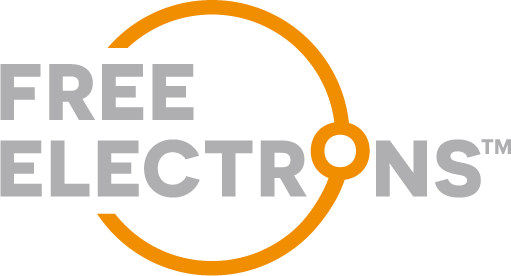
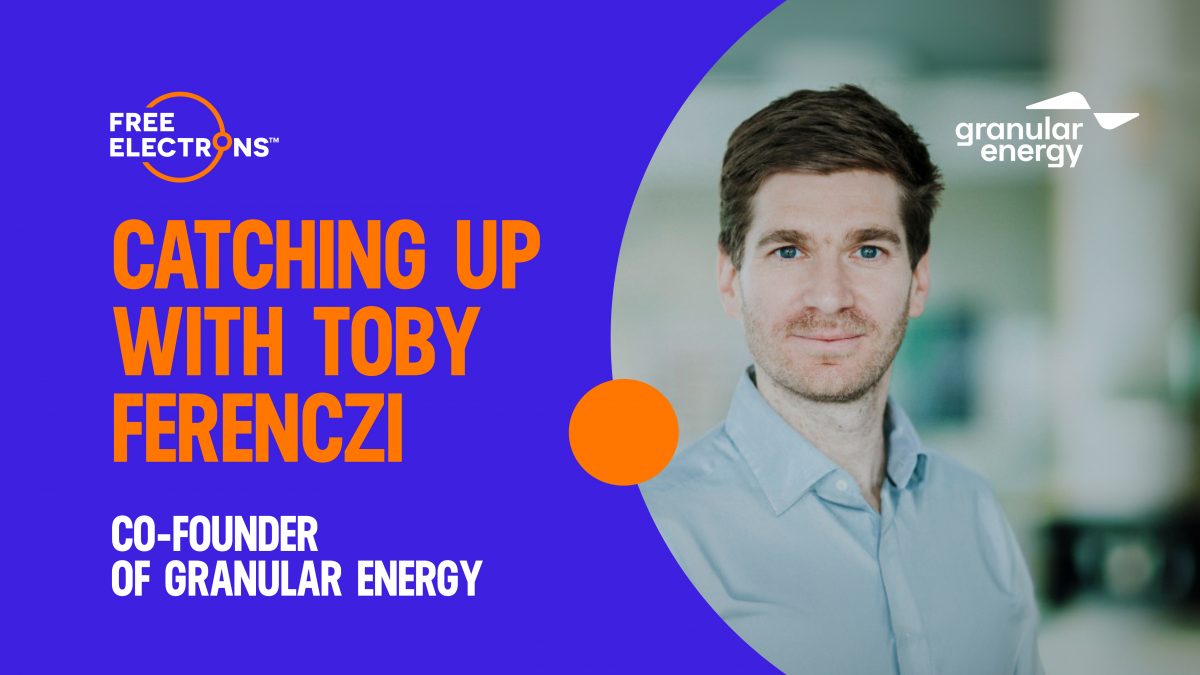
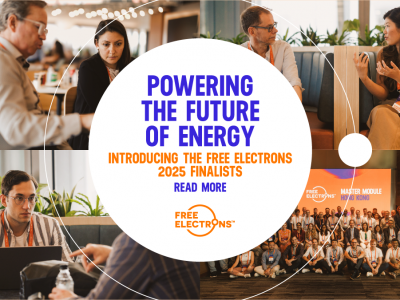
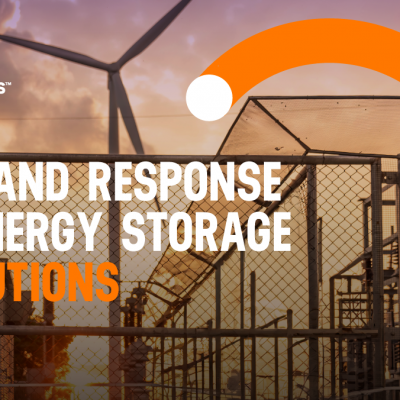
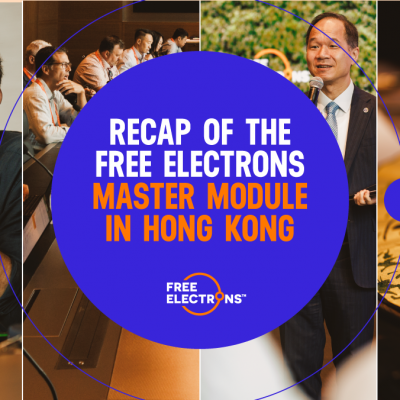
Comments